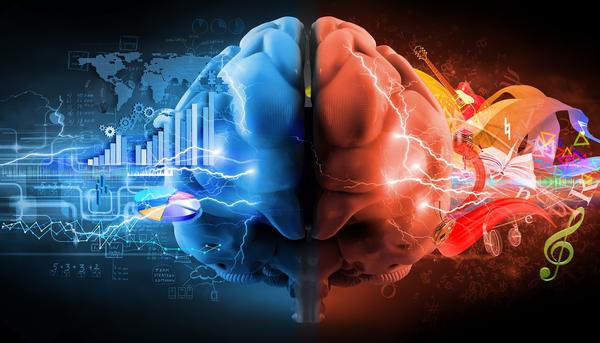
Do you ever stop to think of the mad irony that is “stress”? Stress is your body and mind’s natural reaction to a threat — a response to possible danger that triggers the survival instinct we all know as fight or flight. And the ironic side of it all seems to kick in once we’re aware that we’re dealing with chronic or unrelenting stress because this is often when we start to become stressed simply about the fact that we're....stressed. Suddenly, the snowball effect has begun.
Now, if you felt you had a better understanding of the science and biology behind stress, do you imagine it might not actually feel so stressful after all? If your answer is “yes,” then great. You're in luck. And if your answer wasn’t yes well, what do you have to lose by learning anyway?
According to developmental molecular biologist John Medina, there are two functions of the brain that are keys to helping you perform at your best: executive function and emotional awareness. Executive function rules your brain’s ability to be rational. Strong executive function is key in focus and productivity as it is overseen by the prefrontal cortex, tied to impulse control and the ability to delay gratification, typically for a greater good. Meanwhile, your amygdala and prefrontal cortex control emotional awareness, deciding how fully you can feel a given experience and strong emotions without being overwhelmed by them. When you’re simply reactive to simple stressors in daily life, you release cortisol. Over time, if your brain gets used to doing this, you’re left drained and feeling exhausted.
These two functions also help us understand how we build brain pathways, which determine how we start to associate stressful situations as stressful situations over time. When you do anything and get the same result over and over, your brain literally builds a pathway between the action and the outcome: eat a cookie every time you begin to feel overwhelmed and your mind will default to that same action in the face of stress over time. This process of subconsciously associating an action with the outcome determines the importance of building good habits and breaking bad ones when dealing with stress.
Researchers have determined that it takes just over two months to establish a strong brain pathway. So how do you start to build a healthy habit and a new healthy brain pathway for coping with stress? Exercise, meditation, and intermittent fasting are three actionable things that can build healthy brain pathways when stressed. Of the three, you’re probably curious how intermittent fasting ended up on the list. Research shows that going 12 to 16 hours without food actually increases brain-derived neurotrophic factor (BDNF) levels, a brain protein that enhances your ability to learn and focus. It’s actually the exact same response your brain has to endurance exercises. And while depriving yourself of food might sound more painful for the brain (and stress) than rewarding, what you’re actually doing is strengthening your emotional response, the very part brain function we pointed out at the beginning of this piece. The desire to snap at someone while under stress and the desire to break your fast early are both rooted in impulse control. And viola, just like that we’ve brought it all full circle: executive function and emotional awareness can make or break your association with stress.

